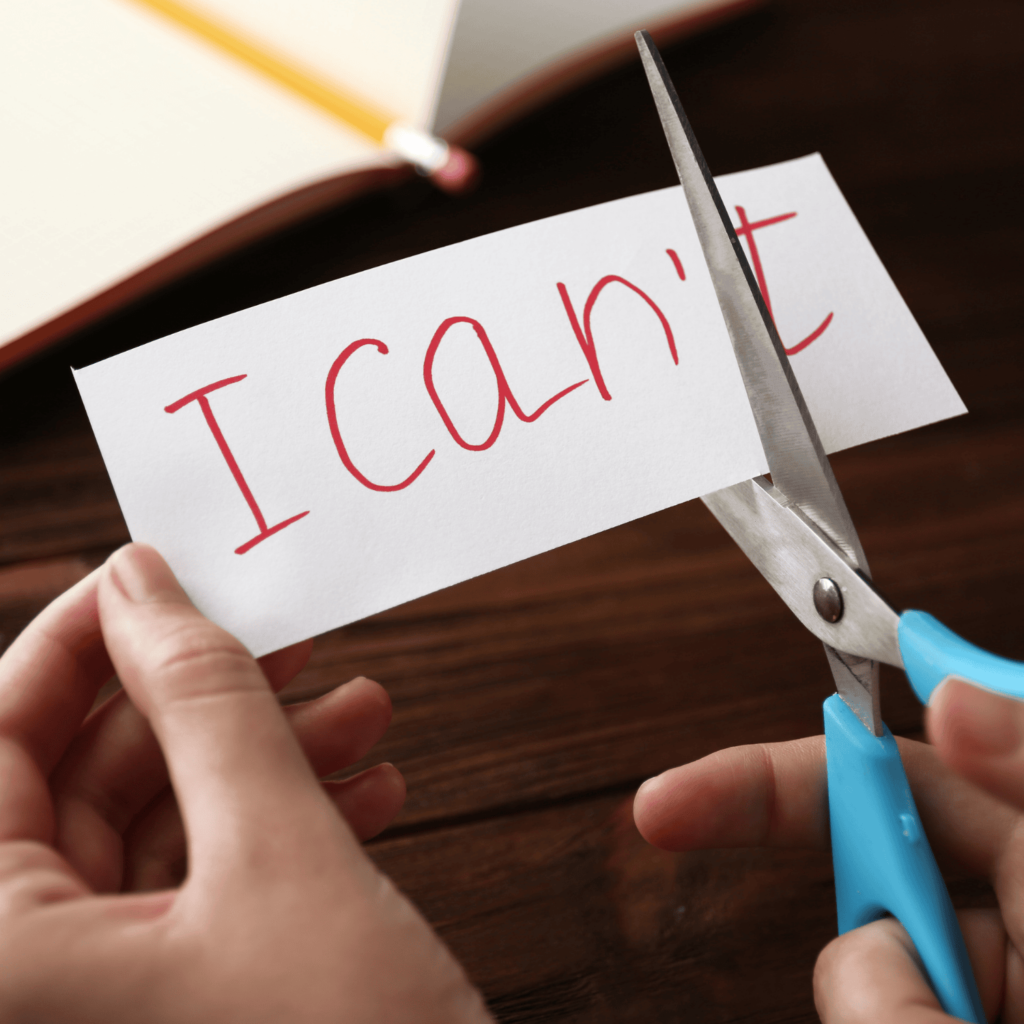
In the journey of self-development and growth, limiting beliefs can be the most stubborn roadblocks. These are the thoughts and assumptions we hold about ourselves and the world that confine our potential. Often rooted in past experiences, societal expectations, or fear, limiting beliefs dictate what we think we can or cannot do. They silently shape our actions—or lack thereof—keeping us from realizing our full potential. As Henry Ford wisely said, “Whether you think you can, or you think you can’t—you’re right.”
In this post, we’ll explore some of the most common limiting beliefs, where they come from, and how to overcome them. Recognizing and addressing these beliefs is a pivotal step toward personal growth.
Common Limiting Beliefs
1. I’m Not Good Enough

This is one of the most pervasive limiting beliefs. The idea that you lack the skills, intelligence, or qualities needed to succeed often stems from childhood experiences or repeated failures. Comparing yourself to others can amplify this belief, leading to feelings of inadequacy.
But here’s the truth: no one starts as a master.
Even the most successful individuals have faced failure and self-doubt. As Nelson Mandela said, “I never lose. I either win or learn.” By viewing challenges as opportunities for growth rather than tests of your worth, you can begin to dismantle this belief.
Actionable Step: Write down your accomplishments, no matter how small. Reflect on the progress you’ve made over time. This practice reinforces the idea that you are capable and have the potential to grow.
2. I’ll Fail If I Try

Fear of failure often prevents people from pursuing their dreams. The thought of making mistakes can be paralyzing, leading to inaction. This belief is rooted in perfectionism and the misconception that failure is a reflection of your worth.
However, failure is not the opposite of success—it’s a stepping stone to it.
Thomas Edison, when asked about his numerous failed attempts to create the light bulb, famously said, “I have not failed. I’ve just found 10,000 ways that won’t work.”
Actionable Step: Reframe your perspective on failure. Instead of fearing it, see it as a learning opportunity. Ask yourself, “What’s the worst that could happen?” Often, you’ll find that the consequences of failure are not as dire as you imagined.
3. I Don’t Have Enough Time

This belief is a common excuse for not pursuing personal goals. While it’s true that modern life can be hectic, the idea that there’s never enough time is often a matter of priorities rather than actual scarcity.
Stephen R. Covey, author of The 7 Habits of Highly Effective People, noted, “The key is in not spending time, but in investing it.”
Time is a finite resource, but how you allocate it is within your control.
Actionable Step: Track how you spend your time over a week. Identify areas where you could cut back on less productive activities, like excessive social media use, and redirect that time toward your goals.
4. I’m Too Old (or Too Young)

Age-related limiting beliefs can arise at any stage of life. Young people may feel they lack the experience to succeed, while older individuals may believe it’s too late to start something new.
These beliefs are often societal constructs rather than objective truths. History is filled with examples of individuals defying age-related expectations.
Take Colonel Harland Sanders, who founded KFC in his 60s, or Malala Yousafzai, who won a Nobel Peace Prize as a teenager.
Actionable Step: Challenge this belief by seeking out role models who have succeeded despite their age. Surround yourself with supportive communities that encourage action regardless of age.
5. I’m Not Lucky Enough

The belief in luck as a determining factor in success is a common trap. While circumstances do play a role in life, attributing success solely to luck undermines the power of effort and perseverance.
As Seneca, the ancient philosopher, said, “Luck is what happens when preparation meets opportunity.” Rather than waiting for luck to strike, focus on building skills and seeking opportunities.
Actionable Step: Shift your mindset from external reliance to internal control. Identify areas where you can take proactive steps toward your goals instead of waiting for the “perfect moment”.
6. People Will Judge Me

The fear of judgment often stems from a desire for acceptance. While it’s natural to want approval, letting this fear control your actions limits your ability to live authentically.
It’s important to remember that people’s opinions are just that—opinions.
As Eleanor Roosevelt put it, “You wouldn’t worry so much about what others think of you if you realized how seldom they do.” Most people are too focused on their own lives to scrutinize yours.
Actionable Step: Practice self-acceptance and focus on your values. When you align your actions with what truly matters to you, the fear of judgment diminishes.
7. It’s Too Risky

The fear of judgment often stems from a desire for acceptance. While it’s natural to want approval, letting this fear control your actions limits your ability to live authentically.
It’s important to remember that people’s opinions are just that—opinions.
Risk aversion is a natural response to uncertainty, but it can also be a limiting belief when it prevents you from taking necessary leaps. Every worthwhile endeavor carries some level of risk, but staying in your comfort zone guarantees stagnation.
As Helen Keller said, “Life is either a daring adventure or nothing at all.” Taking calculated risks can lead to immense personal growth and fulfillment.
Actionable Step: Start small. Take a minor risk in an area of your life and observe the outcome. Build your tolerance for uncertainty gradually.
Overcoming Limiting Beliefs: A Framework
Breaking free from limiting beliefs requires a combination of self-awareness, action, and mindset shifts. Here’s a simple framework to help:
1. Identify the Belief:
Write down thoughts that hold you back. Be specific.

2. Challenge the Belief:
Ask yourself, “Is this absolutely true?” Look for evidence that contradicts it.

3. Replace the Belief:
Create an empowering alternative belief. For example, replace “I’ll never succeed” with “Success is a journey, and I’m taking steps forward.”

4. Take Action:
Even small actions can reinforce new beliefs. Prove to yourself that change is possible.

Limiting beliefs may feel like immutable truths, but they are often nothing more than stories we tell ourselves. The beauty of stories is that they can be rewritten. By confronting these beliefs, challenging their validity, and replacing them with empowering alternatives, you open the door to a life of growth, fulfillment, and endless possibilities.
As you reflect on your own journey, remember this quote by Tony Robbins:

What story will you choose to tell moving forward?
Now is the time to take the first step toward breaking free. What limiting belief will you challenge today?





